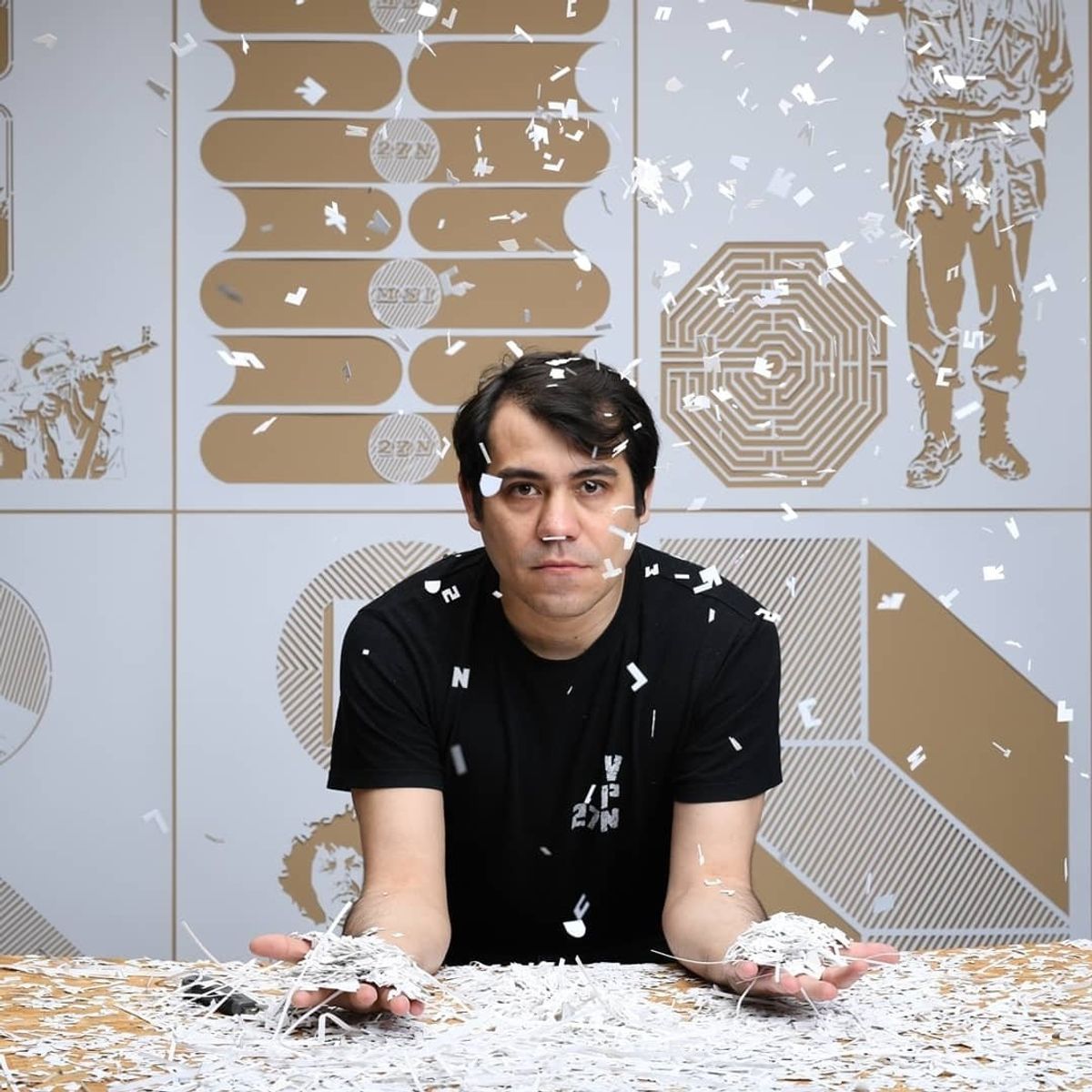The artist Hamlet Lavastida, a member of Cuba’s 27N movement of artists, journalists, and activists who advocate for greater political and artistic freedom on the island, was arrested on 26 June after returning to the island from an artist’s residency in Germany, according to 27N members.
Lavastida touched down on the island on 20 June, and, following Cuban government Covid-19 protocol, was sent to a confinement centre to quarantine for five days. On the evening of sixth day, as Lavastida was set to be released, his mother received a phone call from the Cuban security service, who told her the artist had been detained, was “under investigation”, and would be held in Havana’s Villa Marista prison despite the fact that charges had not been filed against him, multiple sources told The Art Newspaper.
Lavastida has been an outspoken critic of the Cuban government’s harsh treatment of artists and intellectuals and the lack of freedom of expression on the island. He was a vocal supporter of the artist Luis Manel Ortero Alcántra, who was recently detained and hospitalised against his will by the Cuban security service eight days into a hunger strike calling for free speech and artistic freedom on the island. Lavastida’s work often reappropriates the language and imagery associated with the political propaganda so accepted as part of the Cuban identity but that, for Cuban citizens and especially artists, means police interrogations, the inability to ask questions and “microtactics of control”.
These tactics have been well documented by human rights organisations in the past, especially since the creation of the San Isidro Movement, an ally and predecessor of 27N. "Cuban authorities have shamelessly carried out an ongoing attack on freedom of expression for years. Independent artists and their supporters have faced arrests, surveillance, harassment and intimidation by the authorities, solely because of their artistic expression. We urge Cuban authorities to stop stifling them and instead, take action to guarantee freedom of expression in the country”, says Elina Castillo Jiménez, Caribbean Campaigner at Amnesty International.
Cultura Profiláctica, Lavastida’s solo exhibition at Künstlerhaus Bethanien gallery in Berlin where he was in residency supported by the Kfw Stiftung foundation, consists of two large scale installations made of paper cutouts, including a massive transcript of a police interrogation of Cuban photographer Javier Caso from 2020 combined with a letter written by Cuban poet Herberto Padilla in which he was forced to denounce his own work as counterrevolutionary after a brutal 36 days of imprisonment.
Some of his 27N colleagues, who have not heard from him since his arrest, worry that he could be kept in police custody or worse under the 1999 Law of Protection of the National and Economy Independence of Cuba (Law 88). Meant to strengthen the US embargo of Cuba, Law 88 allows for sanctions against "those actions that in accordance with imperialist interests seek to subvert the internal order of the Nation and destroy its political, economic and social system” according to Diario de Cuba.
The law can be applied to Cuban nationals regardless of whether they are in the country, meaning Lavastida was vulnerable during his German residency. Prosecutor José Luis Reyes Blanco, a department head in the Criminal Proceedings Directorate of the Attorney General’s Office, said on the Cuban television show Hacemos Cuba (We Make Cuba) the law allows for "the trial of people who are not in the country. Those individuals who fund, convene or coordinate these actions may be prosecuted in absentia”, according to the Miami Herald. If that’s the case, Lavastida may have been found guilty of trying to dismantle the Cuban government before his plane landed in Havana.


